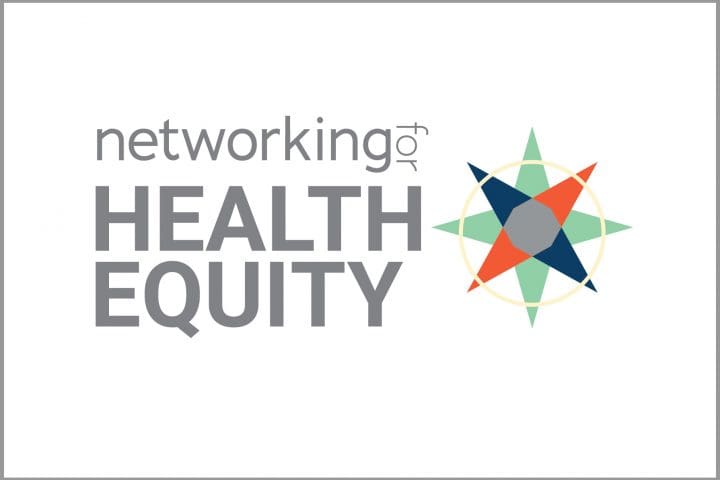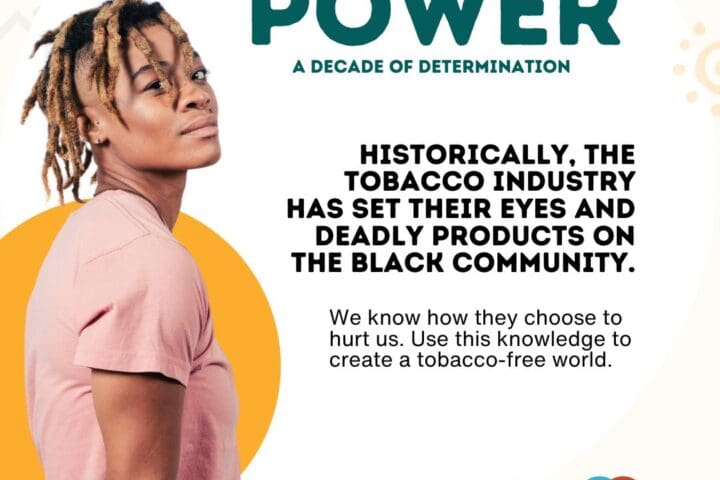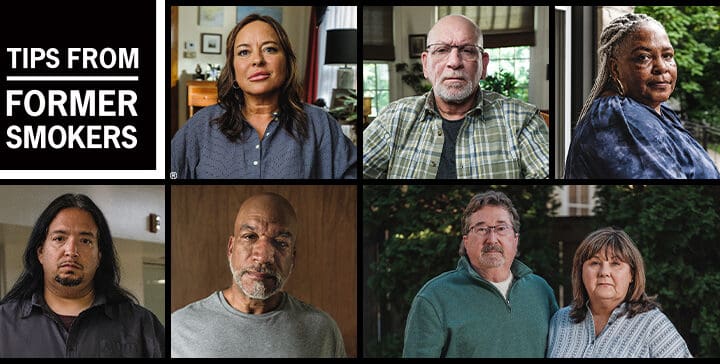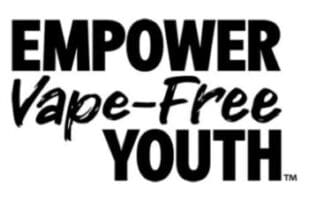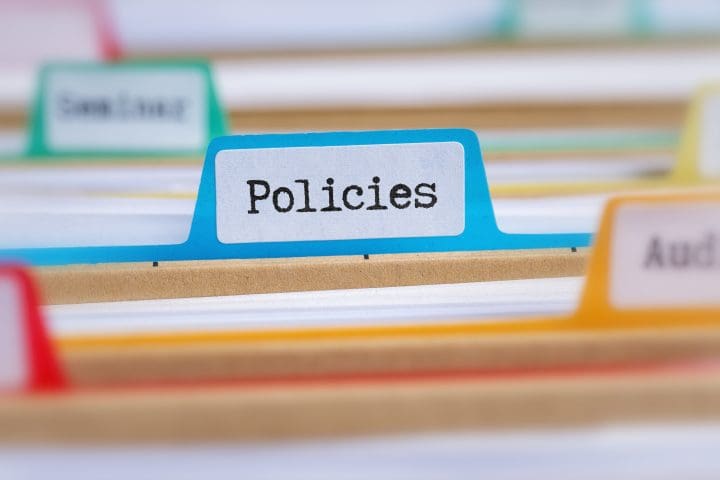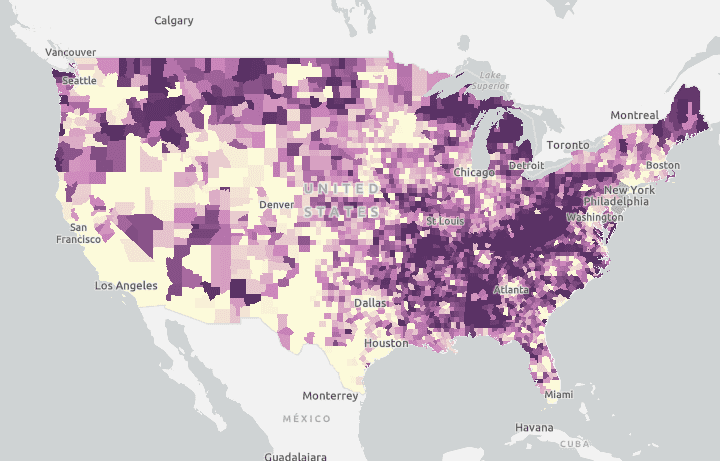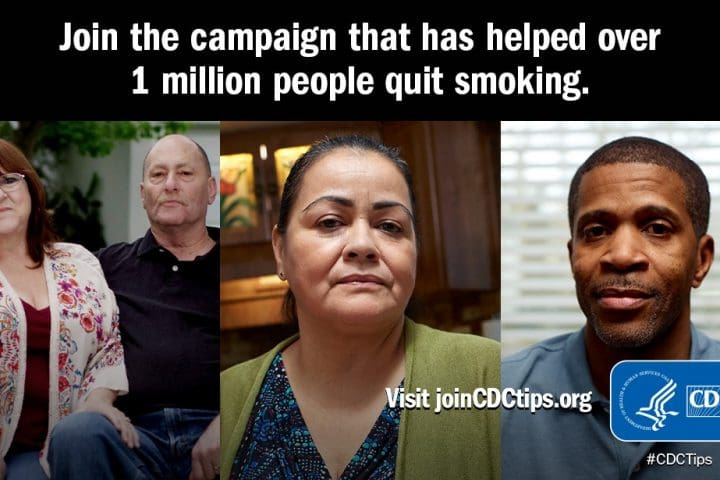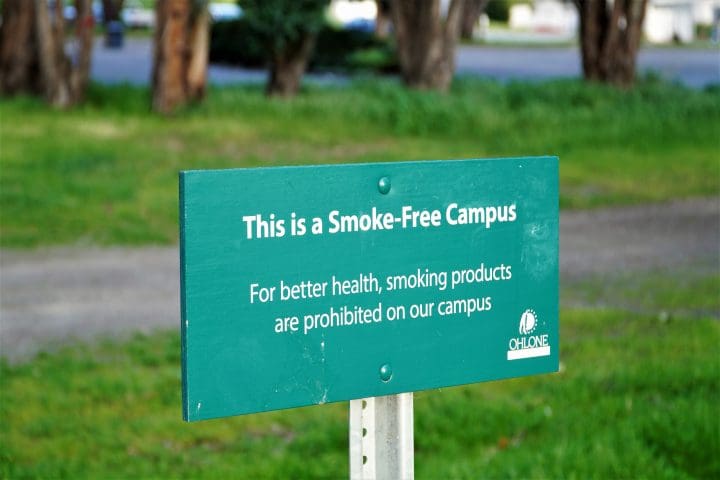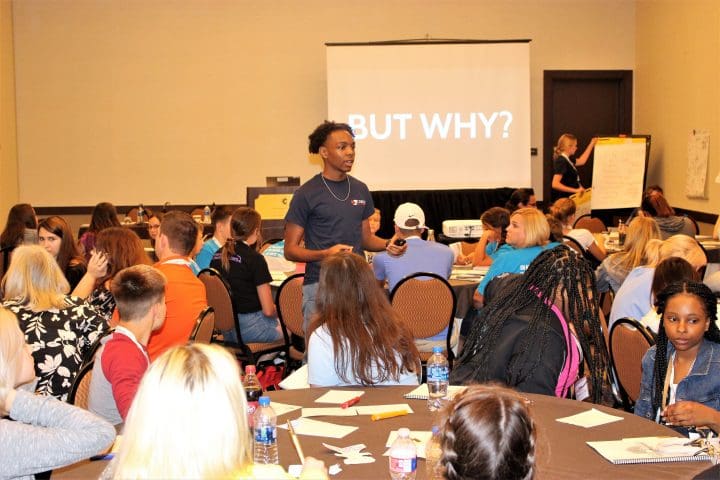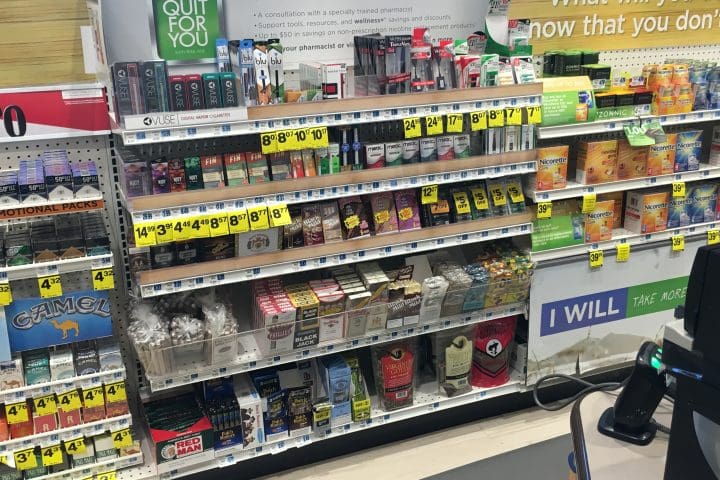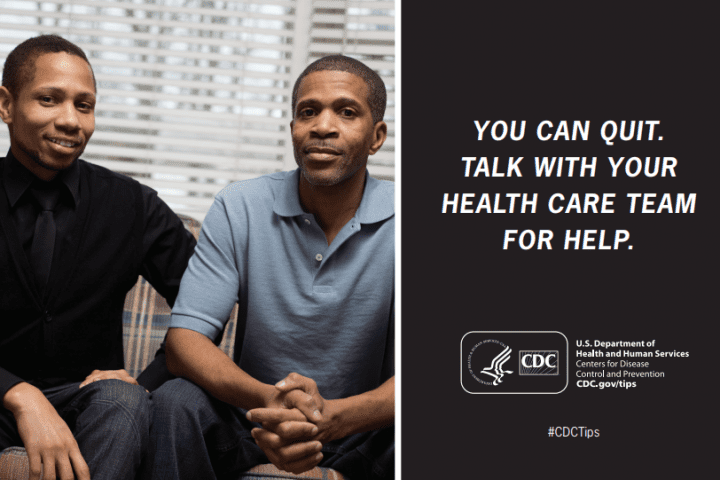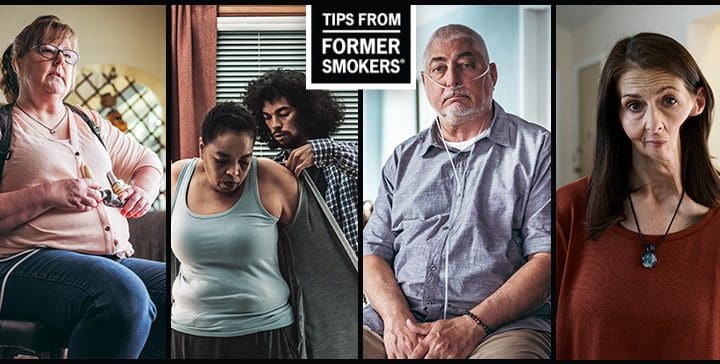- Show all
- COVID-19
- Telehealth
- Comprehensive Cancer Control
- Tobacco Free Colleges
- Geographical Disparities
- Data
- Health Communication
- Menthol
- E-Cigarettes
- Obesity
- Pollution
- Geographic Surveillance
- Tobacco Control and Prevention
- Policy
- Evaluation
- Secondhand Smoke
- Tobacco Prevention and Control
- Webinar
- Surveillance
- Health Disparities
- Place-Based
- Public Interest Communications
- Strategic Communication
- Geographic Disparities
- Cessation
- Youth
- Rural
- Geographic Data Tools
- Community Coalitions
- Health Equity
- Cancer Prevention and Control
Webinar Recording Available: “E-Cigarettes and Point-of-Sale Policies”
The Geographic Health Equity Alliance (GHEA) partnered with the National Coalition Institute and Counter Tools to host a webinar titled “E-Cigarettes and Point-of-Sale Policies”. In this webinar, Jacob Delbridge showed how the retail environment impacts nicotine use and dependence among youth and young adults. Jacob also provided evidence of how a local tobacco retail license with point-of-sale policies can prevent youth access and use.
Rural Chronic Disease Management Toolkit
The Rural Health Information Hub recently released a toolkit titled Rural Chronic Disease Management. The toolkit compiles evidence-based and promising practices/resources to support chronic disease management programs in rural communities across the United States.
National Network Resources for Special Populations July 2024
Every month, the Geographic Health Equity Alliance (GHEA) aggregates upcoming webinars, events and other resources hosted by the CDC-funded National Networks.
Public Health Law Center’s Youth Purchase, Use, or Possession Fact Sheet
The Public Health Law Center recently released a fact sheet that explores the harms of Purchase, Use, and Possession (PUP) laws and shares valuable solutions for policymakers and public health advocates seeking to repeal them in their state.
Commercial Tobacco Control and Health Equity Sessions at CADCA’s Upcoming Mid-Year Training Institute
CADCA’s 23rd Annual Mid-Year Training Institute will take place in Chicago, IL from July 14-18, and will offer a large variety of sophisticated training sessions and workshops related to substance use and misuse prevention and more. GHEA has worked closely with experts in the field to curate workshops that are relevant for commercial tobacco-prevention and control professionals.
National Network Resources for Special Populations June 2024
Every month, the Geographic Health Equity Alliance (GHEA) aggregates upcoming webinars, events and other resources hosted by the CDC-funded National Networks.
The American Lung Association’s 22nd State of Tobacco Control Report
A growing number of states are considering or have passed e-cigarette registry bills, also known as “e-registry”, that have been predominantly supported by the commercial tobacco industry. In a recent webinar, the Public Health Law Center went over what the typical “e-registry” bill contains and convened a panel of public health experts to discuss whether and to what extent these laws advance public health goals or if they help consolidate the market for big tobacco companies while diverting attention from proven public-health strategies. The webinar recording and slides are now available.
National Network Resources for Special Populations May 2024
Every month, the Geographic Health Equity Alliance (GHEA) aggregates upcoming webinars, events and other resources hosted by the CDC-funded National Networks.
10 Years of No Menthol Sunday
A growing number of states are considering or have passed e-cigarette registry bills, also known as “e-registry”, that have been predominantly supported by the commercial tobacco industry. In a recent webinar, the Public Health Law Center went over what the typical “e-registry” bill contains and convened a panel of public health experts to discuss whether and to what extent these laws advance public health goals or if they help consolidate the market for big tobacco companies while diverting attention from proven public-health strategies. The webinar recording and slides are now available.
National Network Resources for Special Populations April 2024
Every month, the Geographic Health Equity Alliance (GHEA) aggregates upcoming webinars, events and other resources hosted by the CDC-funded National Networks.
Public Health Law Center’s Webinar on E-Registry Bills and their Implications for Public Health
A growing number of states are considering or have passed e-cigarette registry bills, also known as “e-registry”, that have been predominantly supported by the commercial tobacco industry. In a recent webinar, the Public Health Law Center went over what the typical “e-registry” bill contains and convened a panel of public health experts to discuss whether and to what extent these laws advance public health goals or if they help consolidate the market for big tobacco companies while diverting attention from proven public-health strategies. The webinar recording and slides are now available.
National Network Resources for Special Populations March 2024
Every month, the Geographic Health Equity Alliance (GHEA) aggregates upcoming webinars, events and other resources hosted by the CDC-funded National Networks.
CDC Launches their 2024 Tips from Former Smokers® Campaign
CDC’s Office on Smoking and Health (OSH) recently launched their 2024 Tips from Former Smokers® (Tips®) campaign. This campaign features real people sharing their stories of how cigarette smoking and secondhand smoke exposure have negatively impacted their health as well as the toll these smoking-related conditions have taken on their family members. The CDC Tips® page hosts free campaign materials and resources for partners, public health professionals, tobacco control advocates and coalitions who are working to prevent commercial tobacco use in their communities.
National Network Resources for Special Populations February 2024
Every month, the Geographic Health Equity Alliance (GHEA) aggregates upcoming webinars, events and other resources hosted by the CDC-funded National Networks.
National Network Resources for Special Populations January 2024
Every month, the Geographic Health Equity Alliance (GHEA) aggregates upcoming webinars, events and other resources hosted by the CDC-funded National Networks.
Place Based Inequities in Cigarette Smoking Across the US
Across the United States, there is unequal protection offered by commercial tobacco control in significant geographical differences in commercial tobacco use, as well as poor health outcomes associated with tobacco. In 2021, the Population Level Analysis and Community Estimates (PLACES)- a collaboration between the CDC and Robert Wood Johnson Foundation- released estimates of smoking prevalence across all US Census tracts, allowing these inequities to be quantified. In a recent scientific letter, “Place Based Inequities in Cigarette Smoking Across the US”, researchers characterized inequities in cigarette smoking in 500 of the largest US cities.
Research into Action Webinar: “Draining the Tobacco Swamps: Shaping the Built Environment to Reduce Tobacco Retailer Proximity to Residents In 30 Big US Cities”
The National Coalition Institute recently hosted a Research into Action webinar featuring Veronica Chaitan in which she shared findings from a recent article, “Draining the Tobacco Swamps: Shaping Tthe Built Environment to Reduce Tobacco Retailer Proximity to Residents In 30 Big US Cities,” published in Health & Place in 2022. She discussed the existing tobacco retail environment in 30 major US cities and the effect of retail reduction policies. The webinar recording is now available.
Truth Initiative’s Toxic Therapy from your Vape Campaign
The tobacco industry has invested a significant amount of time and money in marketing that connects commercial tobacco products that contain nicotine with stress relief and mental well-being. The CDC reports that many of today’s youth may turn to commercial tobacco products that contain nicotine as a way to cope with stress. However, nicotine is a highly addictive drug that has been shown to worsen symptoms of anxiety and depression, especially among youth who are suffering from nicotine dependence and attempt to quit. The Truth Initiative recently released a new campaign titled “Toxic Therapy from your Vape” which aims to address the connection between vaping nicotine and its adverse effects on youth mental health.
National Network Resources for Special Populations December 2023
Every month, the Geographic Health Equity Alliance (GHEA) aggregates upcoming webinars, events and other resources hosted by the CDC-funded National Networks.
CDC’s Empower Vape-Free Youth Campaign
For decades the tobacco industry has used flavored products to mask the harshness and flavor of tobacco, which is particularly appealing to youth. E-cigarettes, an electronic device that heats liquid and produces aerosol, are the most popular commercial tobacco product youth use. The devices typically contain nicotine and come in several enticing flavors including candy, fruit and menthol, making them highly addicting and dangerous. To combat this tactic by the commercial tobacco industry, the CDC’s Office on Smoking and Health (OSH) recently released a new campaign, Empower Vape-Free Youth. The goal of this campaign is to empower middle and high school educators to speak with youth about the risks of e-cigarettes and nicotine addiction and to encourage youth to avoid and/or quit vaping.
National Network Resources for Special Populations November 2023
Every month, the Geographic Health Equity Alliance (GHEA) aggregates upcoming webinars, events and other resources hosted by the CDC-funded National Networks.
Webinar Recording Available: Barriers and Successful Strategies for Engaging Rural Populations in State Comprehensive Cancer Control Planning: Program Manager Perspectives
Dr. Whitney Zahnd from University of Iowa’s Advancing Cancer and Rural Equity (ACRE) Lab hosted a webinar titled, “Barriers and Successful Strategies for Engaging Rural Populations in State Comprehensive Cancer Control Planning: Program Manger Perspectives. The recording is now available.
National HPV Vaccination Roundtable: HPV Vaccination Starts at Age 9 Communications Toolkit
The HPV vaccine is routinely recommended to male and female youth and adolescents. New evidence shows that early vaccination, at age 9, can significantly boost vaccine initiation and completion rates, address disparities in access, and prevent more cancers. The National HPV Vaccination Roundtable developed a communications toolkit to assist hospital systems and state and local health departments in implementing age 9 HPV vaccination messaging.
National Network Resources for Special Populations October 2023
Every month, the Geographic Health Equity Alliance (GHEA) aggregates upcoming webinars, events and other resources hosted by the CDC-funded National Networks.
Increasing Food Security Efforts Across the Cancer Continuum: A Toolkit for Comprehensive Cancer Control Coalitions from the American Cancer Society
Food insecurity has major ramifications on an individual’s health, causing increased rates of diabetes, heart disease, obesity and mental health disorders. Recent research shows that low food security is much higher among cancer survivors and their caregivers, causing greater cancer-related challenges such as decreased quality of life, depression, medication nonadherence and cancer progression. To help address this disparity, the American Cancer Society recently released a food security toolkit to assist comprehensive cancer control coalitions in their efforts to address food security among cancer survivors.
National Network Resources for Special Populations September 2023
Every month, the Geographic Health Equity Alliance (GHEA) aggregates upcoming webinars, events and other resources hosted by the CDC-funded National Networks.
Resources to Advance Rural Prosperity and Racial Equity
ChangeLab Solutions recently expanded their suite of resources dedicated to advancing rural prosperity by adding a strategy brief on advancing racial equity and a policy table that can assist in these changes. These resources are a part of the Toward Better Rural Futures project which focuses on equipping leaders with the tools necessary to ensure that their community can thrive. These two new publications include tools for local and state policymakers, community leaders, and changemakers in rural areas to make a lasting impact through policy changes that can raise the bar for everyone.
National Network Resources for Special Populations August 2023
Every month, the Geographic Health Equity Alliance (GHEA) aggregates upcoming webinars, events and other resources hosted by the CDC-funded National Networks.
Tobacco Nation: A Call to Eliminate Geographic Smoking Disparities in the U.S.
A recent report released by the Truth Initiative highlights the reasons behind the higher smoking prevalence among several southern and midwestern states. This report also emphasized the importance of adopting strong commercial tobacco policies to decrease commercial tobacco usage and secondhand smoke exposure in these areas.
National Network Resources for Special Populations July 2023
Every month, the Geographic Health Equity Alliance (GHEA) aggregates upcoming webinars, events and other resources hosted by the CDC-funded National Networks.
Mapping a New Terrain: Five Principles for Equitable Rural Outdoor Recreation Economies
The Aspen Institute Community Strategies Group (Aspen CSG) recently released a Call to Action as a response from their Thrive Rural Action-Learning Exchange (TRALE) where they sought to answer the question, “What will it take for outdoor recreation economies to grow equitable rural prosperity?” They found that there are five principles for creating equitable and thriving rural outdoor recreation economies.
National Network Resources for Special Populations June 2023
Every month, the Geographic Health Equity Alliance (GHEA) aggregates upcoming webinars, events and other resources hosted by the CDC-funded National Networks.
National Network Resources for Special Populations May 2023
Every month, the Geographic Health Equity Alliance (GHEA) aggregates upcoming webinars, events and other resources hosted by the CDC-funded National Networks.
Eliminate Tobacco Use Virginia Summit
Last month the Geographic Health Equity Alliance and one of CADCA’s Master Trainers, Dylan Ellerbee, partnered to host a one-day, in- person training workshop for the Eliminate Tobacco Use Virginia Summit. The Eliminate Tobacco Use Initiative is a nationwide initiative to address tobacco use across colleges and universities.
Research Into Action Webinar: Impact of Vaping Prevention Advertisements on US Adolescents
The Geographic Health Equity Alliance (GHEA) would like to highlight the most recent Research Into Action Webinar hosted by GHEA and the University of North Carolina Chapel Hill’s Communicating for Health Impact (CHI) Lab.
National Network Resources for Special Populations
Every month, the Geographic Health Equity Alliance (GHEA) aggregates upcoming webinars, events and other resources hosted by the CDC-funded National Networks.
CORI Rural Aperture Project
The Center on Rural Innovation (CORI) started a project funded by the Robert Wood Johnson Foundation’s Thrive Rural Initiative meant to leverage data to shift the public’s view of rural America. CORI has partnered with MDC, an organization that collects economic and demographic data across the South, to publish narratives and data visualizations that create a more accurate portrayal of rural communities.
New NORC Rural Health Mapping Tool
NORC at the University of Chicago (NORC) released an interactive mapping tool late last year. The measures included in the mapping tool provide a comprehensive picture of the well-being of rural communities, and it is the first publicly available tool to display a county-level map of the prosperity index developed by NORC.
Upcoming Webinar: Impact of Vaping Prevention Advertisements on US Adolescents
Join CADCA’s Geographic Health Equity Alliance (GHEA) and the University of North Carolina Chapel Hill’s Communicating for Health Impact (CHI) Lab for our upcoming webinar.
Setting Rural-Relevant Goals, Objectives and Strategies in Comprehensive Cancer Control Planning
Key elements of comprehensive cancer control plans include the development of goals, objectives and strategies to address the cancer burden within the state, tribal organization or territory. In developing rural-relevant goals, objectives and strategies there are a few important considerations.
State of Tobacco Control 2023: Proven Policies to Prevent and Reduce Tobacco Use
The American Lung Association (ALA) recently released their 21st annual State of Tobacco Control report. The report serves as a blueprint for actions that should be taken at the state and federal levels to reduce death and disease caused by tobacco use. The ALA assigns state and federal policies letter grades, A through F, based on their effectiveness in preventing and reducing tobacco use.
PLACES: Local Data for Better Health
The Centers for Disease Control and Prevention (CDC) PLACES database was created through a partnership between the Robert Wood Johnson Foundation and the CDC Foundation. The PLACES website is a public, interactive resource. Users can view and download data by county, place, census tract, and Zip Code Tabulations Area (ZCTA). New PLACES data was released in December 2022.
Webinar Recording Available: Engaging Rural Partners in Comprehensive Cancer Control Planning
Collaboration is imperative for comprehensive cancer control programs and the development and update of state comprehensive cancer control plans. This webinar included a panel of cancer coalitions and comprehensive cancer control program evaluators who shared how they engaged rural partners throughout their respective states through coalition workgroups, surveys, focus groups, and other efforts.
A New Best Practices User Guide: Tobacco Where You Live – Mapping Techniques
The Center for Disease Control and Prevention (CDC) and the Center for Public Health Systems Science (CPHSS) at the Brown School at Washington University in St. Louis published a new addition to the best practice user guide for state tobacco control programs: Tobacco Where You Live – Mapping Techniques.
Webinar Recording Available: Identifying and Implementing Evidence-Based Strategies in Comprehensive Cancer Control Planning
GHEA and the University of Iowa’s Advancing Cancer and Rural Equity Lab hosted "Identifying and Implementing Evidence-Based Strategies in Comprehensive Cancer Control Planning" on October 26, 2022. This webinar highlighted examples of evidence-based strategies for cancer control and how these have been effectively implemented in rural communities, organizations and clinical settings. Watch the recording today!
A Look at E-Cigarette Use Among Youth in America in 2022
The Centers for Disease Control and Prevention (CDC) and the Food and Drug Administration (FDA) have published results from the 2022 National Youth Tobacco Survey (NYTS) assessing current trends among youth who use e-cigarettes across the country.
Updated Resource Guide for PSE Change in Comprehensive Cancer Control
The American Cancer Society recently published a revised version of the PSE Change Guide: Policy, Systems, and Environmental Change in Comprehensive Cancer Control. This guide incorporates the latest research, case examples and resources from partners across the country. It explains what the PSE change approach is, the process for fostering coalition capacity to implement PSE changes and explores key takeaways and themes from an extensive search of the recent literature.
Webinar Recording Available: Setting Rural-Focused Goals and Strategies in Comprehensive Cancer Control Planning
GHEA and the University of Iowa’s Advancing Cancer and Rural Equity Lab hosted "Setting Rural-Focused Goals and Strategies in Comprehensive Cancer Control Planning" on September 22, 2022. This webinar provided best practices for developing goals, objectives, and strategies that address both the unique challenges and strengths of rural communities.
Webinar Series: Rural Inclusion in Comprehensive Cancer Control
Comprehensive cancer control programs have a unique opportunity to provide a blueprint for addressing rural disparities within their states. GHEA, along with the University of Iowa’s Advancing Cancer and Rural Equity Lab hosted a 4-part webinar series to help comprehensive cancer control programs meaningfully include rural in their program planning processes. Watch the recordings today!
The Policy Playbook for E-Cigarettes: Policy and Advocacy Tools for Communities Addressing E-Cigarette Use
The Public Health Law Center partnered with the Vaping Prevention Resource and the UNC Lineberger Comprehensive Cancer Center to update their 2020 Policy Playbook to version 2.0, released in 2022. The Policy Playbook covers a variety of policy options available at the state and local level to help decrease e-cigarette use.
Webinar Recording Available: Innovative Local Solutions in Public Health
Watch the recording of "Innovative Solutions in Public Health" presented by CADCA’s Geographic Health Equity Alliance (GHEA) and Counter Tools. In this webinar, we’ll discuss innovative policy solutions that began at the local level.
Webinar: Building Rural Focused Partnerships in Comprehensive Cancer Control Planning
GHEA and the University of Iowa’s Advancing Cancer and Rural Equity Lab hosted "Building Rural-Focused Partnerships in Comprehensive Cancer Control Planning" on August 16, 2022. This webinar discussed how to build partnerships with rural partners to support rural cancer control and highlighted state plans and consortia who have ensured rural voices are at the table.
Webinar: Using Local Momentum to Drive State and Federal Policy Change
Assessing local policy change through case studies helps identify lessons learned and keys to success, which can help set the stage for state or national change. GHEA and Counter Tools bring together leaders from the tobacco control field to share insights on how steadfast work at the local level helped to drive policy change across the country.
Webinar: Youth Indoor and Outdoor Exposure to Secondhand Smoke and Aerosol
GHEA and CADCA’s Evaluation and Research Team presented August's installment of Research Into Action webinar series featuring Dr. Samantha Puvanesarajah and Michael Tynan, MPH, from CDC's Office on Smoking and Health, who discussed findings from their latest study on youth indoor and outdoor exposure to secondhand smoke and aerosol.
Apply for the Truth Initiative’s Tobacco/Vape-Free College Program
The Truth Initiative Tobacco/Vape-Free College Program is offering grants of up to $20,000 to colleges and universities to support the adoption and implementation of a 100% tobacco/vape-free policy. Grantees receive programming for student activism and evidence-based cessation for students and employees. The deadline to apply is October 12, 2022.
Tobacco Control and Health Equity Sessions at CADCA’s Upcoming Mid-Year Training Institute
CADCA’s 21st Annual Mid-Year Training Institute is back in-person! It will be held in Orlando, FL from July 17-21, and will offer a large variety of sophisticated training sessions and workshops related to substance use and misuse prevention and more. GHEA has worked closely with experts in the field to curate workshops that are relevant for tobacco-prevention and control professionals.
A Resource Guide for Cancer Coalitions to Policy, Systems and Environmental Change
A new resource guide created by the Comprehensive Cancer Control National Partners provides models and tools to assist with planning and implementing policy, systems and environmental change activities.
Webinar: Building the Rationale for Local Policy Change
The ability for cities and towns to tailor laws is vitally important to ensuring these policies adhere to the wants and needs of the communities they impact. In this webinar, speakers will provide a broad rationale for local-level policy efforts and the implications for public health, as well as insight on strategies that have proven successful for local policy implementation.
New Local Control Webinar Series – Register Today!
Local governments are on the front lines of adopting laws and policies that have the potential to improve health outcomes and reduce inequities. CADCA’s Geographic Health Equity Alliance, in collaboration with Counter Tools, is hosting a three-part webinar series to equip attendees with an understanding of why local policy solutions are so important, lessons learned from local policy implementation efforts and innovative policy strategies built at the local-level. Register today!
Webinar: Defining and Describing Rural Communities in Comprehensive Cancer Control Planning
GHEA and the University of Iowa’s Advancing Cancer and Rural Equity Lab hosted "Defining and Describing Rural Communities in Comprehensive Cancer Control Planning" on June 7, 2022. This webinar focused on how rural is commonly defined, what data sources are available to describe the rural cancer burden and cancer risk factors to incorporate into comprehensive cancer control plans.
Resources to Advance Rural Health and Well-Being in America
The Robert Wood Johnson Foundation (RWJF) has compiled a collection of resources that focus on factors that impact health and opportunities in rural communities and advance health equity in America.
Getting to Know Truth: Resources for Inspiring Lives Free from Smoking, Vaping and Nicotine
In an early celebration of World No Tobacco Day 2022, CADCA’s Geographic Health Equity Alliance (GHEA) partnered with the Truth Initiative to present “Getting to Know Truth: Resources for Inspiring Lives Free from Smoking, Vaping and Nicotine” on May 25th, 2022. This webinar introduced participants to free resources that are available via the Truth Initiative. These resources included the truth® campaign and its evaluation; Vaping: Know the Truth (a vaping prevention program); This is Quitting (a text message based vaping cessation program for youth and young adults); and community, and youth engagement programs.
Framing Tobacco Disparities: A Collection of Free Messaging Guides for Tobacco Prevention Staff and Partners
ChangeLab Solutions has recently released their collection of Framing Tobacco Disparities resources. These evidence-informed resources are intended to help tobacco prevention and control staff and their partners learn how to frame tobacco-related health disparities messages in ways that reduce racial biases and foster support for effective policy solutions.
The 2022 State of Tobacco Control: Celebrating 20 Years of Progress and Looking Ahead
The American Lung Association (ALA) recently released their 20th annual State of Tobacco Control report. The report highlights state and federal level progress in reducing commercial tobacco use with an emphasis on health disparities related to tobacco use.
Legislative Briefs Highlighting Rural Health and Health Equity
The Association of State and Territorial Health Officials (ASTHO) recently published two policy briefs on Health Equity and Rural Health for their Legislative Prospectus series. These briefs anticipate trends in public health law, summarize upcoming legislation proposals that impact public health and provide a short review to help bring readers up to speed in time for upcoming legislative sessions.
Tobacco Control and Health Equity Sessions at CADCA’s 32nd Annual National Leadership Forum
CADCA's National Leadership Forum is right around the corner! If you are attending, we have curated a number of sessions that are relevant for tobacco-prevention and control professionals. This year, our recommended sessions include presentations by CDC’s Center for Chronic Disease Prevention and Health Promotion and our fellow CDC National Network, The National Council for Mental Wellbeing.
Webinar: Youth Led Efforts – Current Trends of E-Cig & Tobacco
A panel of experts from CDC's National Networks present “Community Lead Efforts: Current Trends of E-Cig/ Vaping & Youth Elevating the Movement Towards Health Equity for All.” This webinar discusses how to approach tobacco and e-cigarette use through youth engagement and strategies that affect special populations across the nation through a lens of racial, ethnic, geographic and social health equity.
CDC Releases New Data for the 2021 PLACES Project
CDC recently announced the release of new data for their PLACES project. PLACES allows counties, communities and local health departments, regardless of population size and urban-rural status, to better understand the burden and geographic distribution of health-related outcomes in their jurisdictions and assists them in planning public health interventions.
New Tobacco Control Guide to Help Put Evidence into Practice
CDC’s Office on Smoking and Health has published a new Best Practices User Guide, “Putting Evidence into Practice in Tobacco Prevention and Control,” in partnership with the Center for Public Health Systems Science. This User Guide is designed to help programs share information about effective ways to reduce commercial tobacco use and put new or improved tobacco control interventions into practice.
Webinar: E-Cigarette Collection and Disposal in Schools
GHEA and the Public Health Law Center recently presented “E-Cigarette Collection and Disposal in Schools: ABCs and FAQs.” This webinar discussed the hazardous waste status of e-cigarettes, highlighted current local and state efforts, and shared best practices that schools (and other public entities) can adopt to handle and regulate these products.
New Report on E-Cigarette Use Among Middle and High School Students
Youth e-cigarette use remains a serious public health concern amid the COVID-19 pandemic. Researchers from the CDC and FDA analyzed national data and found that more than 2 million U.S. middle and high school students currently use e-cigarettes in 2021, and almost 85% of those youth use flavored e-cigarettes.
Health Equity Tip Sheet to Help Update Cancer Control Plans
The Comprehensive Cancer Control National Partnership has a series of Cancer Plan Tip Sheets available to help Comprehensive Cancer Control program staff, coalition staff and volunteers to update their cancer plans. Most recently, a Tip Sheet for Health Equity was published, which outlines steps to help address health equity when revising cancer plans.
Interactive State Cancer Control Profiles to Help Guide Cancer Control Efforts
The State Cancer Profiles website provides data, maps and graphs to help guide and prioritize cancer control activities at the state and local levels.
Tobacco Control and Health Equity Sessions at CADCA’s Upcoming Mid-Year Training Institute
CADCA’s 20th Annual Mid-Year Training Institute will be held virtually from July 9-15, 2021 and will offer 100+ sophisticated training sessions and workshops related to substance use and misuse prevention and more. GHEA has worked closely with experts in the field to curate workshops that are relevant for tobacco-prevention and control professionals.
Webinar: Cancer, Obesity and Place
Join GHEA and Counter Tools for the “Cancer, Obesity and Place” webinar on Friday, June 25, from 1-2 pm EDT. This session will explain the connection between where we live, work and play and the impact it has on obesity, why this matters to cancer control programs and what policy options could help address these issues.
The 2021 State of Tobacco Control: Federal and State Government Evaluation
Earlier this year, the American Lung Association released its 19th annual "State of Tobacco Control" report. This report evaluates federal and state government’s tobacco control laws and policies and serves as a roadmap for what they can do to eliminate the death and disease caused by tobacco use.
Webinar: Health Communication Resources to Support Your Tobacco Control and Prevention Goals
GHEA partnered with the CDC’s Office on Smoking and Health to present “Health Communication Resources to Support Your Tobacco Control and Prevention Goals. This webinar discussed the role of health communications in supporting tobacco prevention and control goals and familiarized attendees with the resources available at CDC’s Media Campaign Resource Center.
Share Your Story! CDC Tips is Recruiting New Participants
The CDC is currently recruiting participants to be featured in future Tips From Former Smokers® (Tips®) campaigns. They are seeking former smokers and their caregivers to tell stories about how their lives have changed due to smoking-related diseases. Recruitment closes May 14, 2021.
2021 Geographic Surveillance Learning Collaborative-Applications Now Open!
CADCA’s Geographic Health Equity Alliance and Counter Tools are excited to announce the upcoming 2021 Geographic Surveillance Learning Collaborative for National Tobacco Control and National Comprehensive Cancer Control Programs. Applications are due by Friday, April 30, 2021.
CDC Launches the 2021 Tips Campaign, Marking its 10 Year Anniversary
CDC released a new round of Tips From Former Smokers (Tips) Campaign resources, including social media content, videos, print ads, buttons, badges and other content tailored for specific audiences. This year marks 10 years since the first launch of the campaign.
Spanish Webinar on Youth Engagement in Tobacco Control
GHEA is partnering with CADCA’s Youth Leadership and Nuestras Voces (Our Voices) Network to present a Spanish adaptation of the “Youth Engagement in Tobacco Control: Getting Started” webinar on Wednesday, March 17, from 2 – 3:30 pm EST.
ACS Cancer Facts & Figures 2021 Reports on the Current State of Cancer in the U.S.
The American Cancer Society recently released its Cancer Facts & Figures for 2021. This annual report provides the most current trends in cancer occurrence and survival, as well as information on symptoms, prevention, early detection and treatment. The report’s Special Section focuses on the impact of the COVID-19 pandemic on cancer in the United States.
Tobacco Control and E-Cigarette Sessions at CADCA’s 2021 National Leadership Forum
In preparation for CADCA's upcoming National Leadership Forum, GHEA worked closely with experts in the field to curate a number of sessions and that are relevant for tobacco-prevention and control professionals.
Webinar: Perception of Harm from E-Cigarettes and Support for a Tobacco-Free Campus Policy
GHEA and CADCA’s Evaluation and Research Team presented January’s installment of Research Into Action, featuring Dr. Matthew Rossheim who discussed his latest study’s findings on perception of harm of secondhand exposure to e-cigarette emissions and support for tobacco-free campus policies among college students.
Two-Part Webinar Series on Youth Engagement in Tobacco Control
GHEA has partnered with CADCA’s Youth Leadership Initiative and Nuestras Voces (Our Voices) Network to present a two-part webinar series, “Youth Engagement in Tobacco Control.” The first webinar outlined a foundation for an authentic and equitable youth program focused on achieving population-level change in tobacco and other substance misuse prevention efforts. The webinar recording is now available.
CDC Expands Local Area Health Estimates in new PLACES Project
The PLACES Project allows counties, communities and local health departments, regardless of population size and urban-rural status, to better understand the burden and geographic distribution of health-related outcomes in their jurisdictions and assists them in planning public health interventions.
New ACS Website Provides Resources for CCC Programs and Coalitions
The American Cancer Society’s Comprehensive Cancer Control Initiative (ACS CCC) recently launched their new website, with resources to help comprehensive cancer control programs and coalitions implement evidence-based interventions and policy, systems and environmental changes.
Webinar: Tobacco Prevention and Control in Rural America
GHEA partnered with the National Network of Public Health Institutes and the Maine Public Health Institute at the University of Southern Maine to present the webinar “Tobacco Prevention and Control in Rural America,” on October 30. The webinar presented current rural tobacco prevention and control activities and shared strategies and recommendations for advancing tobacco control in rural communities across the country.
New Guide to Best Practices in Tobacco Retail Licensing for Your City, County or State
Tobacco retail licensing (TRL) has become a vital regulatory tool that enables states and localities to ensure retailers comply with responsible retailing practices. The Preventing Tobacco Addiction Foundation recently released a guide, “Tobacco Retail Licensing: An Essential Tool to Reduce Youth Usage and Foster Health Equity,” which provides detailed information on best practices in TRL.
2020 Tri-Network HPV Vaccination Learning Collaborative
The Geographic Health Equity Alliance, Nuestras Voces Network and Selfmade Health Network are excited to announce the inaugural Tri-Networks HPV Vaccination Learning Collaborative for Comprehensive Cancer Control (CCC) Programs and partners.
Policy Surveillance and Legal Mapping Resources – Tools for Improving Public Health
LawAtlas.org is the flagship policy surveillance website of Temple University’s Center for Public Health Law Research (CPHLR). The website houses over 100 policy surveillance legal maps and hosts a comprehensive series of free training modules on policy surveillance skills and competencies.
Webinar: Tobacco Minimum Floor Price Laws and Adult Smoking Prevalence
GHEA and CADCA’s Evaluation and Research Team have partnered with Counter Tools to present this month’s installment of Research Into Action, focusing on minimum floor price laws on tobacco.
Surveillance and Evaluation Webinar Series Explores the Role of Evaluation in Tobacco Control
The Surveillance and Evaluation Webinar Series shares information on evaluation best and promising practices and explores the different roles of evaluation in tobacco control work.
COVID-19 and Health Equity Resources from the Robert Wood Johnson Foundation
COVID-19 has impacted communities throughout in the United States, though certain groups are disproportionately suffering from the pandemic. The Robert Wood Johnson Foundation (RWJF) has developed a collection of resources and perspectives on COVID-19 and health equity.
New Report and Webinar on the Rural Quitline Evaluation Project
The National Jewish Health (NJH) Project - Rural Quitline Evaluation report helps NJH and state quitline funders better understand the barriers and facilitators to engaging and sustaining rural tobacco users in quitline services.
2020 Geographic Surveillance Learning Collaborative
CADCA’s Geographic Health Equity Alliance and Counter Tools are excited to announce the inaugural Geographic Surveillance Learning Collaborative for National Tobacco Control and Comprehensive Cancer Control Programs.
New Release: 2020 Annual Report to the Nation on the Status of Cancer
Cancer experts release a new report on cancer occurrence and trends in the United States. Part I of the report presents the latest cancer statistics; part II highlights progress towards achieving Healthy People 2020 objectives related to lung, colorectal, female breast and prostate cancers.
Social Media Toolkit for Emerging Issues in Commercial Tobacco Use
The George Washington University Cancer Center, in collaboration with the CDC’s National Networks, released a social media toolkit for emerging issues in commercial tobacco use prevention and cessation.
Webinar: Why Point of Sale Matters
GHEA and CADCA’s Evaluation and Research Team have partnered with Counter Tools to present this month’s installment of Research Into Action focusing on tobacco Retail Strategies.
CDC Provides Customized Cessation Resources for Your Organization
CDC’s 2020 Tips campaign provides free resources customized for partner organizations to help people in their communities quit smoking.
CDC Launches 2020 Tips From Former Smokers (Tips) Campaign
CDC released a new round of Tips From Former Smokers (Tips) Campaign resources, including social media content, videos, print ads, buttons and badges and other content tailored for specific audiences.
Smoking Cessation: A Report of the Surgeon General
The office of the Surgeon General released a report on smoking cessation in the United States, highlighting health disparities related to tobacco by geographic region.
Toolkit: Advancing Tobacco Prevention and Control in Rural America
Rural residents in the United States are disproportionately affected by tobacco use and its associated health burdens. A recently developed toolkit outlines a tailored approach to tobacco prevention and control in rural areas.
Webinar: The Science of What Makes People Care
CADCA and its Geographic Health Equity Alliance (GHEA) are proud to present this special edition of Research Into Action focusing on public health communications strategy.
Joint Policy Statement: Impact of Menthol on Tobacco Disparity Populations
Networking for Health Equity, the alliance of all eight CDC funded tobacco and cancer disparity networks, is proud to release the attached policy statement about the impact of menthol on tobacco disparity populations.
Webinar: Tobacco Retail Licensing and Youth E-cigarette and Other Tobacco Product Use
CADCA’s Evaluation and Research Team and the Geographic Health Equity Alliance (GHEA) partnered with Counter Tools to present this month’s installment of Research Into Action focusing on tobacco retail licensing as a viable strategy to reduce youth e-cigarette use.
CDC Launches 2019 Tips From Former Smokers (Tips) Campaign
Centers for Disease Control and Prevention (CDC) launched their 2019 Tips From Former Smokers (Tips) campaign.
Addressing Rural Cancer Health Disparities Publication
GHEA and its partners at the Wake Forest School of Medicine recently released Call to Action: Addressing Rural Cancer Health Disparities.
Evidence-Based Strategies for Reducing Cigarette Smoking
The CDC’s “Best Practices for Comprehensive Tobacco Control Programs” details evidence-based, statewide tobacco control programs that have dramatically reduced smoking rates, and therefore tobacco-related diseases and deaths.
Youth Involvement in Anti-Tobacco Efforts
Young people are influenced by their parents and teachers, but most powerfully by their peers. Whether it’s the clothes they
Monitoring the Future – National Survey Results on Drug Use, 1975-2014
Monitoring the Future (MTF) is designed to give sustained attention to substance use among the nation’s youth and adults.




